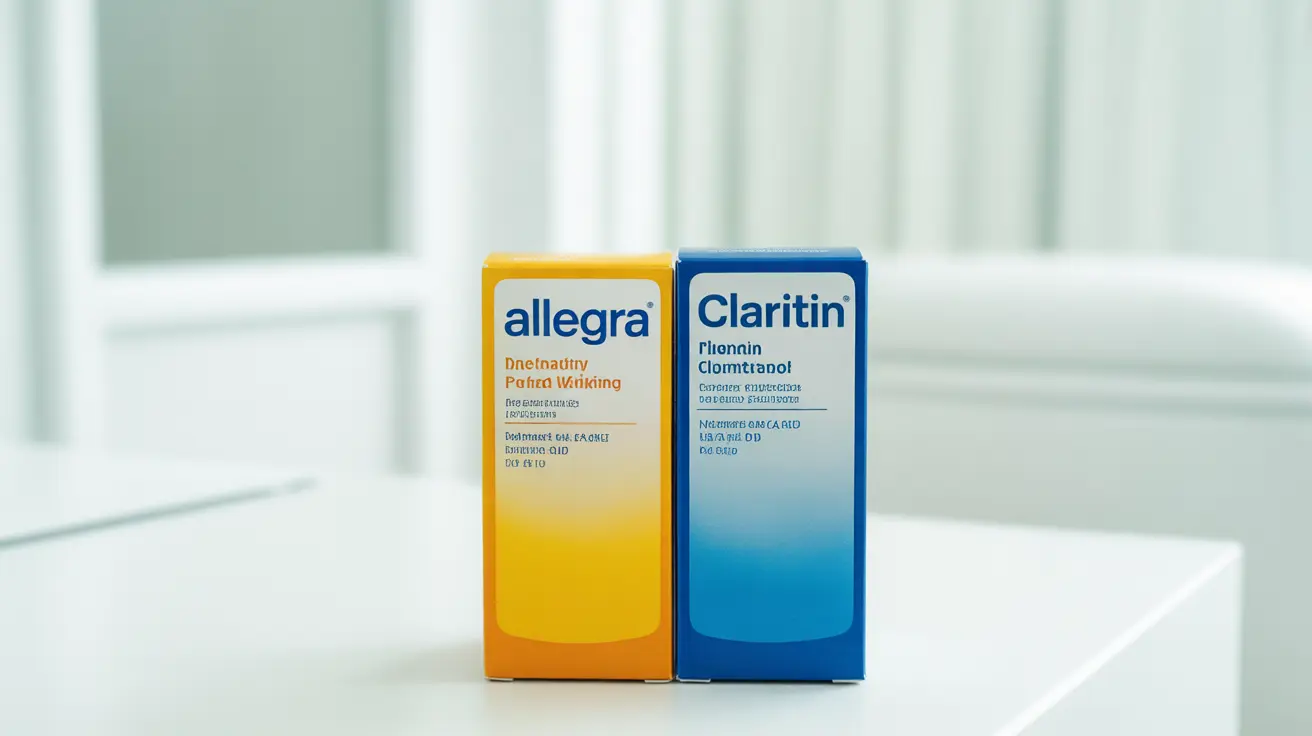When allergy symptoms strike, choosing between Allegra (fexofenadine) and Claritin (loratadine) can be confusing. Both are effective antihistamines that treat common allergy symptoms, but they have distinct characteristics that may make one a better choice for your specific needs. This comprehensive guide will help you understand the key differences between these popular allergy medications.
How These Medications Work
Both Allegra and Claritin belong to the second-generation antihistamine class of medications. They work by blocking histamine receptors in your body, which helps reduce allergy symptoms like sneezing, runny nose, and itchy eyes. However, their chemical structures and specific properties make them unique in several ways.
Speed and Duration of Relief
Allegra typically starts working within one hour of taking the medication, while Claritin usually takes about one to three hours to become effective. Both medications provide 24-hour relief when taken as directed, making them convenient once-daily options for allergy sufferers.
Onset of Action
The faster onset of Allegra may make it preferable for those seeking quicker symptom relief. However, individual response times can vary based on factors such as metabolism and the severity of allergy symptoms.
Drowsiness and Side Effects
One of the most significant differences between these medications is their likelihood of causing drowsiness. Allegra is generally considered the least sedating of all antihistamines, making it an excellent choice for people who need to remain alert during the day. While Claritin is also marketed as non-drowsy, some users may experience mild drowsiness, particularly when first starting the medication.
Age-Specific Formulations
Both medications offer various formulations suitable for different age groups. Allegra is approved for children as young as 6 months old, while Claritin is approved for children aged 2 years and older. Both medications come in various forms, including tablets, liquid formulations, and chewables, making them versatile options for different age groups and preferences.
Important Drug and Food Interactions
When taking these medications, it's essential to be aware of potential interactions. Allegra should not be taken with fruit juices, as they can decrease the medication's effectiveness. Claritin has fewer food interactions but may interact with other medications that affect liver metabolism.
Frequently Asked Questions
What are the main differences between Allegra and Claritin in treating allergy symptoms?
The main differences lie in their onset of action and side effect profiles. Allegra works faster (within 1 hour) and is less likely to cause drowsiness. Claritin takes 1-3 hours to work and may cause mild drowsiness in some users. Both provide 24-hour relief from allergy symptoms.
How quickly do Allegra and Claritin start working, and how long does their relief last?
Allegra typically starts working within one hour, while Claritin takes 1-3 hours to become effective. Both medications provide 24-hour relief when taken as directed.
Is Allegra or Claritin better for children, and what forms do they come in for different ages?
Both medications are suitable for children, with Allegra approved for children as young as 6 months and Claritin for children 2 years and older. Both come in various child-friendly forms including liquids and chewables. The choice often depends on the child's age and ability to take different formulations.
Which medication is less likely to cause drowsiness, Allegra or Claritin?
Allegra is generally considered less likely to cause drowsiness compared to Claritin. While both are marketed as non-drowsy options, Allegra has shown the lowest incidence of sedation among antihistamines.
Are there any important food or drug interactions to be aware of when taking Allegra or Claritin?
Allegra should not be taken with fruit juices as they can decrease its effectiveness. Claritin has fewer food interactions but may interact with medications that affect liver metabolism. Always consult with a healthcare provider about potential drug interactions with your current medications.




